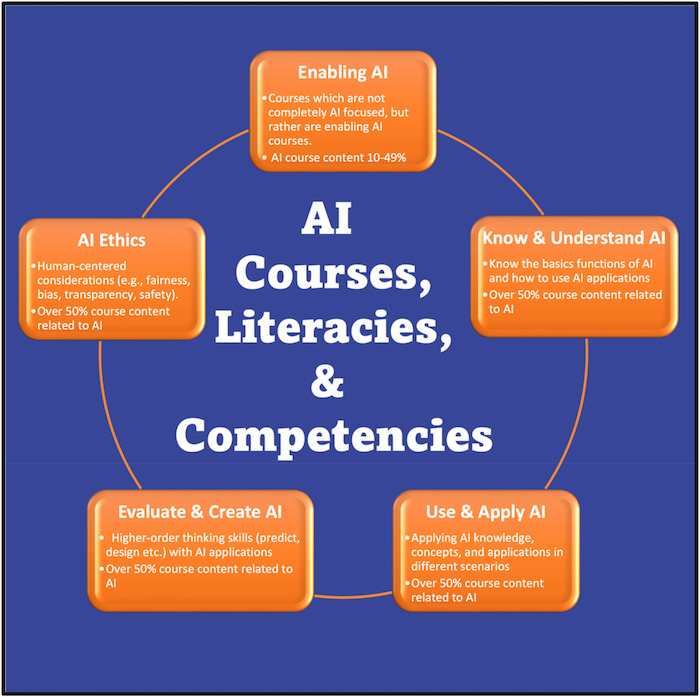
SOUTHWORTH – Developing a model for AI Across the curriculum: Transforming the higher education landscape via innovation in AI literacy
Jane Southworth, Kati Migliaccio, Joe Glover, Ja’Net Glover, David Reed, Christopher McCarty, Joel Brendemuhl, Aaron Thomas
Article first published online: 21 January 2023
DOI: https://doi.org/10.1016/j.caeai.2023.100127
ABSTRACT: Artificial Intelligence (AI) is a ubiquitous concept and tool already found across society and an integral part of everyday life. As such, basic understanding and knowledge of AI should be a critical component of student education to foster successful global citizens. This position paper describes one possible path to address potential gaps in AI education and integrate AI across the curriculum at a traditional research university. The University of Florida (UF) is infusing AI across the curriculum and developing opportunities for student engagement within identified areas of AI literacy regardless of student discipline. The AI Across the Curriculum initiative being developed at UF will make AI education a cornerstone opportunity for all students. The ultimate goal of AI Across the Curriculum is the creation of an AI-ready workforce covering the essential 21st-century competencies identified as workforce and government needs worldwide. Qualified human capital is essential to face the challenges of the 21st-century, and UF is positioning itself to lead in meeting this global societal need. In designing the AI Across the Curriculum model, all students are provided with a suite of AI opportunities and are encouraged to engage. The university is taking advantage of a significant investment in AI campus-wide to innovate curriculum and create activities that nurture interdisciplinary engagement while ensuring student career readiness. As businesses, industry, and governments transform globally within this AI paradigm shift, AI education, innovation, and literacy will become cornerstones of curriculum with UF providing an inclusive example for all undergraduate, graduate, and professional students. While the AI effort at UF is inclusive and broad, the focus of this paper is on undergraduate programs which also represents a Quality Enhancement Plan (or QEP) effort for reaccreditation of UF’s undergraduate programs. This program is highly innovative and transformative, creating interdisciplinary AI literacy opportunity for all students.
Read the full publication in Computers and Education: Artificial Intelligence.